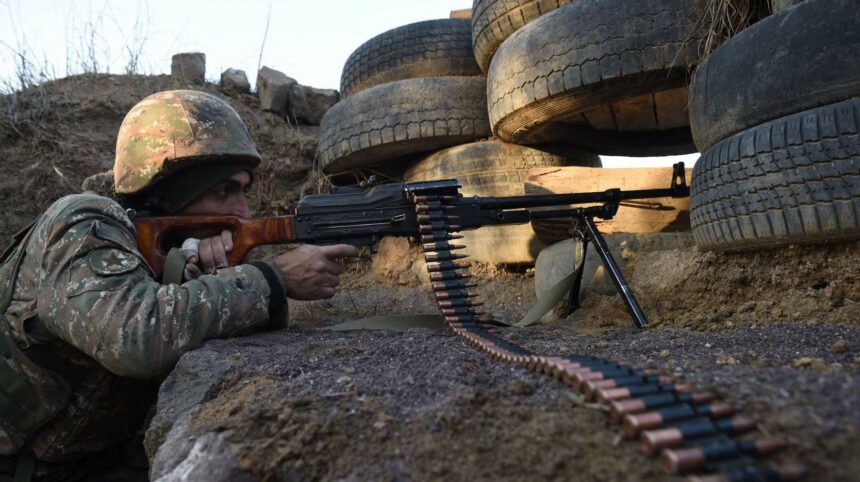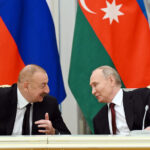The Azerbaijani Army responded to the provocation, after which the exchange of fire turned into an exchange of artillery strikes. While preventing the Armenian provocation, one member of the Azerbaijani military forces was killed and another was seriously wounded.
The escalation on the border occurred shortly after the four-day talks in Washington between the foreign ministers of Azerbaijan and Armenia and before the meeting of the two leaders to be held in Brussels on May 14 with the mediation of President of the EU Council Charles Michel.
It seems that in the run-up to these talks Armenia, which proclaims its genuine commitment to peace in the region at every opportunity almost on a daily basis, is once again deliberately escalating the situation by shelling positions of the Azerbaijani Army, thereby derailing the peace process.
This vicious tactic stems from Yerevan’s endless stalling of the negotiation process, motivated by its unwillingness to recognize the territorial integrity of Azerbaijan, to renounce all territorial claims and, ultimately, to recognize the former Nagorno-Karabakh region as part of the Republic of Azerbaijan.
It is important to note here that in order to achieve peace in the region on the above conditions, the Western mediators put pressure on Yerevan, while the latter, in turn, keeps looking for references to the so-called “Karabakh issue” in the text of the peace treaty. As a result, despite statements by the US State Department that the parties have made progress on some points, the main clauses of the text of the peace treaty remain unreconciled.
It is in this situation that Armenia resorts to another escalation on the border in order to derail the negotiation process again on the eve of the Brussels summit.
According to reports from military sources, the Armenian army placed snipers at its positions in the direction of the Zod Pass in advance, which shows that this provocation, like all the previous ones, is a premeditated one.
Analysts believe Nikol Pashinyan is aware that he will be pressured at the upcoming EU-mediated talks in Brussels and then in Chisinau to force Armenia to make concessions on the points that have not been reconciled in Washington. Therefore, they regard the current escalation on the border as another attempt by Yerevan to neutralize the pressure of the United States and the European Union by accusing Azerbaijan of escalating tensions.
It is also possible that the armed escalation initiated by Armenia at the Zod Pass was coordinated and supported by foreign forces interested in protracting the Armenia-Azerbaijan conflict.










